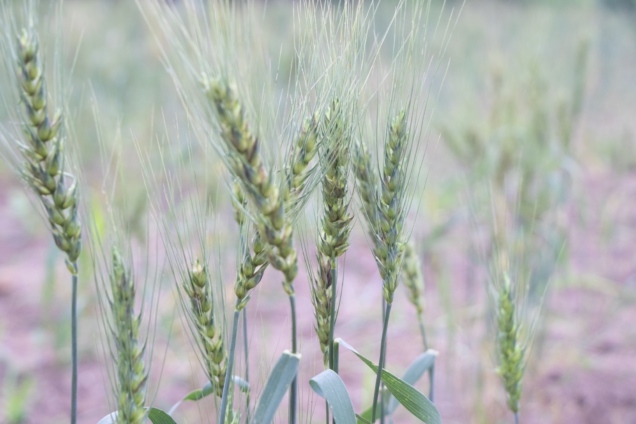
Audio By Carbonatix
A team of scientists from Ghana’s Crops Research Institute (CRI) of the Council for Scientific and Industrial Research (CSIR), has initiated wheat research towards its introduction in the country.
Bread wheat (Triticum aestetivum) is one of the world's most important cereals of the grass family with an estimated economic value of $40 billion per annum in trade.
Ghana’s estimated wheat consumption per capita is 27Kg per annum, largely used for bread, animal/poultry feed and food.
According to the Observatory of Economic Complexity (OEC) report, Ghana imports wheat primarily from Canada ($147 million), Russia ($58.2 million), Lithuania ($14.6 million), France ($10.5 million), and Ukraine ($10.1 million) every year.
The wheat import market continues to grow rapidly for Ghana with a population growth of over 30 million people coupled with fast urbanization.
Unfortunately, the Russia-Ukraine war and the cessation of the black sea grain deal, have negatively hindered wheat grain exports from these parts of the world.
Among other things, Climate change, however, presents opportunities for new crops to adapt to new environments.
The CSIR-CRI has, therefore, commenced wheat adaptive research studies in the Forest, Transition and Guinea Savannah agro-ecological zones of Ghana with funding from India partners, ARIMA-FARMS.
The researchers are led by Dr. Felix Frimpong and Dr. Kennedy Agyeman, under the directorship of Prof. Moses Brandford Mochiah and the deputy director, Dr. Maxwell Darko Asante.
“The relevance of the wheat research in Ghana is to be able to grow and produce our own wheat flour for bread and other baked products and poultry feed by Ghanaian farmers without solely depending on foreign importation,” said Dr. Frimpong.
The team hopes to evaluate the performance of wheat varieties from India across Ghana towards varietal release and registration.
They called for immediate funding and resource support from well-meaning Ghanaians, private companies, international donors and banks, science-based institutions and embassies of various countries as well as the government of Ghana to aid the expansion of the initiative and breed for more varieties.
Latest Stories
-
Leeds say boos during Ramadan pause ‘disappointing’
3 hours -
Premier League deletes Vicario social media post
3 hours -
Real Madrid beaten at home by Getafe for second successive loss
3 hours -
‘Clubs refused to look at me after my crash’ – Antonio on Qatar move
4 hours -
Mayweather to fight kickboxer before Pacquiao rematch
4 hours -
India and Canada reset ties with ‘landmark’ nuclear energy deal
4 hours -
Mahama should equally credit NPP for economic stability – Economist
4 hours -
Mbappe has knee sprain with no surgery planned
4 hours -
Interior Ministry releases funds to settle 2025 rent allowance arrears for security services
5 hours -
Ghana evacuates diplomatic staff from Iran; embassy shut indefinitely — Ablakwa
5 hours -
France to boost nuclear arsenal and extend deterrence to European allies
5 hours -
Chinese community in Ghana marks ‘Year of the Horse’ with grand new year festival
5 hours -
When regional instability becomes national risk: Ghanaian tomato traders killings
5 hours -
Photos: President Mahama meets Tanzania President Suluhu Hassan
6 hours -
Mahama calls for cessation of Iran-US-Israel conflict, urging return to dialogue
6 hours

